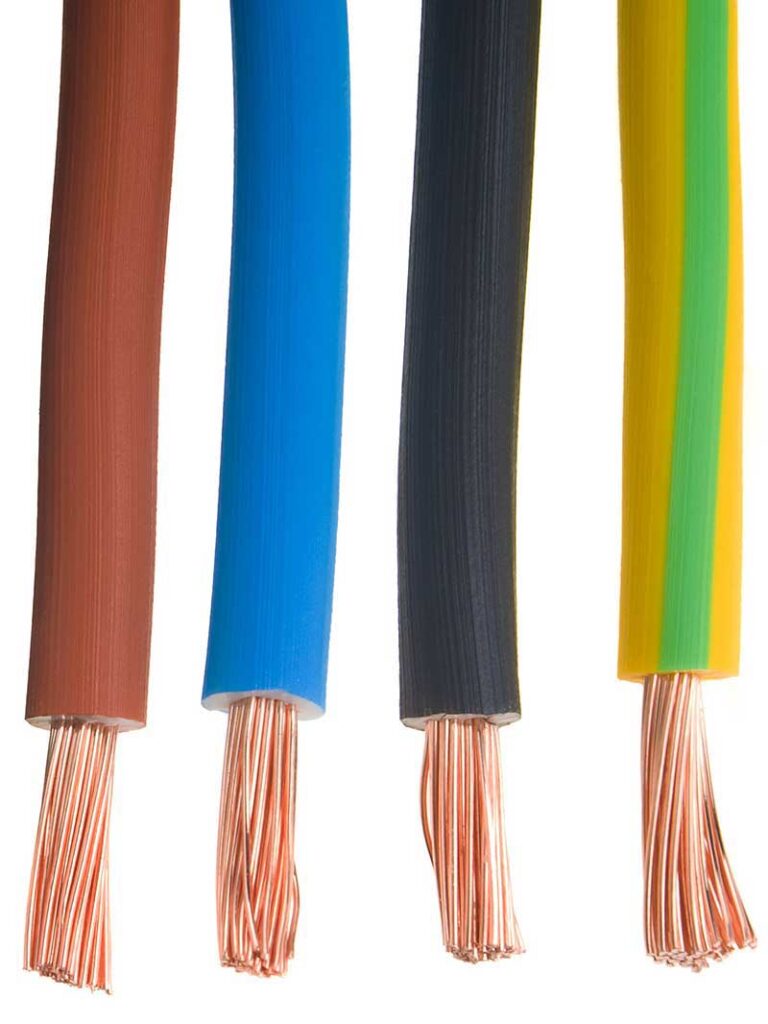
Part of the Hughes empire I know have Hughes looking after my electrical heating and plumbing.
Problems with any of them get a 24 hr response from company that knows my requirements and can solve any problems that occur quickly and expertly
One stop shop as they say
Would highly recommend.
Quick response and good workmanship
Thanks
Welcome to TM Hughes & Son Electrical Services Ltd. We Rewire domestic properties and commercial premises in Wickford.
We also offer a full range of additional Electrical services provided by insured and experienced NICEIC-registered Electricians.
What Is Rewiring, And What Does It Involve?
Rewiring replaces old or outdated electrical wiring with new, modern wiring to ensure your electrical system functions safely and efficiently.
Rewiring involves removing and replacing cables, sockets, switches, and other electrical components.
The process of rewiring a home starts with an inspection of the property’s electrical system by one of our Electricians.
They will assess the condition of the wiring, sockets, switches, Consumer Unit and other components to determine if a Rewire is necessary.
If a Rewire is needed, the Electrician will write a no-obligation quote.
If you want to use us for your Rewiring, a plan is created to ensure efficient and tidy installation, and that work meets the latest safety standards and regulations.
Determining If Your Home Needs Rewiring
Whether the Rewiring of your property is required will depend on the age and the condition of your electrical system.
Generally, homes built over 30 years ago are more likely to require Rewiring, as their electrical systems may need to meet current safety standards or efficiently handle modern electrical loads.
Signs that your home may need Rewiring include old fuse boxes, outdated wiring and electrical faults.
Old fuse boxes, for example, have rewirable fuses or outdated circuit breakers, which are less safe and less efficient than the RCD fuses in modern consumer units.
It is essential to have your Electrical system and wiring inspected every ten years by a qualified Electrician to determine its condition.
We offer free, no-obligation surveys and inspections of Electrical systems.
Old Fuse Boxes
Old fuse boxes and wire fuses are considered obsolete and potentially dangerous due to insufficient safety features and degradation caused over time.
Here are some specific factors contributing to the obsolescence and potential hazards of old fuse boxes with wire fuses:
- Outdated technology: Wire fuses were designed to handle the electrical demands of homes decades ago. As modern households consume more electricity with a greater variety of appliances and devices, old fuse boxes and wire fuses often need help managing the increased electrical loads—wire fuses also flame when overloaded, which poses a risk of fire.
- Insufficient safety features: Modern consumer units have advanced features like residual current devices (RCDs) and miniature circuit breakers (MCBs). RCDs protect against electric shocks by quickly cutting off the power supply when a fault is detected, while MCBs protect against short circuits and overloads. Old fuse boxes with wire fuses are less efficient at cutting power.
- Degradation over time: The materials used in old fuse boxes and wire fuses degrade with time, making them more susceptible to damage and failure. For instance, wire fuses can become brittle and corroded, leading to poor electrical connections and potential hazards. Additionally, the insulation around old wiring can wear away, exposing live wires and increasing the risk of electrical shocks and fires.
- Inaccurate fuse ratings: Wire fuses rely on the melting of a wire filament to break the circuit when an overload occurs. However, the accuracy of fuse ratings can be inconsistent, causing the fuse to either blow too early (resulting in unnecessary power outages) or too late (allowing dangerous overloads to persist).
- Difficulty in identifying faults: Old fuse boxes with wire fuses can make it challenging to pinpoint the source of an electrical problem. Unlike modern consumer units with MCBs, which can be easily reset after tripping, the wire in traditional fuses needs to be replaced each time they blow. This can be time-consuming and frustrating, especially when trying to identify the cause of a recurring issue.
Properties with old fuse boxes generally need Rewiring and the old fuse box replaced with a modern consumer unit.
Upgrading to a modern consumer unit increases the safety and efficiency of your home’s electrical system and makes troubleshooting and maintenance more convenient.
Benefits Of Modern Consumer Units
Rewiring your home electrical system and adding a modern consumer unit offer numerous benefits. These advantages include the following:
- Enhanced safety features: Modern consumer units have advanced features like residual current devices (RCDs) and miniature circuit breakers (MCBs). RCDs protect against electric shock, while MCBs protect against overloads and short circuits. These features significantly reduce the risk of electrical accidents and fires.
- Greater energy efficiency: A modern consumer unit can help you use electricity more efficiently, lowering energy bills and reducing your carbon footprint.
- Easier troubleshooting and maintenance: Modern consumer units are designed to simplify identifying and resolving electrical issues. For example, RCDs are easily reset after a fault, reducing downtime and inconvenience.
System Faults Indicating The Need For A Rewire
Several system faults indicate that your home may require Rewiring. Some common issues include:
- Frequent tripping of fuses: If your fuses trip regularly, it may be a sign that your home’s wiring cannot handle the electrical load safely.
- Flickering or dimming lights: This issue can indicate that your home’s wiring is struggling to maintain a consistent voltage, which may result from old or damaged wiring.
- Overheating sockets or switches: Overheating can be a sign of faulty wiring or an overloaded electrical system, both of which may necessitate a rewire
- Persistent electrical problems: If you frequently experience issues like buzzing sounds, burning smells, tripping fuses or unexplained power outages, a Rewire may be in order.
NICEIC Registration And Part P Of The Building Regulations
NICEIC registration is an accreditation for electrical contractors that demonstrates their commitment to maintaining high industry standards.
By hiring NICEIC-registered Electricians like TM Hughes & Son, you can be confident that the work carried out in your home will be of the highest quality and in compliance with the latest safety regulations.
Part P of the Building Regulations is a set of rules in the UK that governs the installation of electrical systems in domestic properties.
It is designed to ensure that all electrical work meets specific safety standards, reducing the risk of electrical accidents and fires.
TM Hughes & Son Electrical Services Ltd fully complies with Part P of the Building Regulations, ensuring that our rewiring services meet or exceed these essential safety requirements.
Book A Free No-Obligation Survey & Quote
Please get in touch with us using the Phone Number or Contact Form below to book a free, no-obligation survey and quote from one of our experienced Electricians.

Hi, I’m Terry the founder and owner of TM Hughes & Son Electrical Services
Please get in touch using the Phone Numbers or Contact Form below
Call – 01268 351560
[ninja_form id=1]



